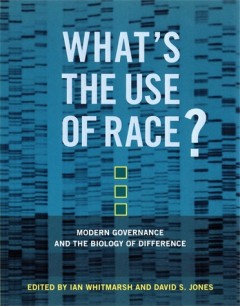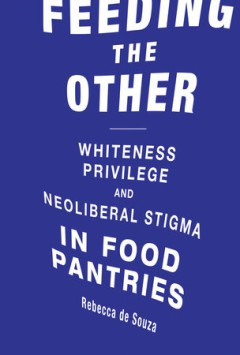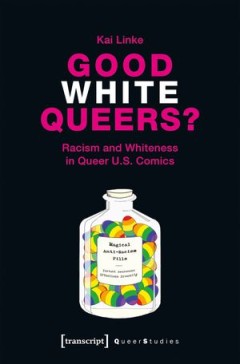Filter by

Black women's stories of everyday racism: narrative analysis for social change
- Edition
- -
- ISBN/ISSN
- 9781003460077
- Collation
- -
- Series Title
- -
- Call Number
- -
- Edition
- -
- ISBN/ISSN
- 9781003460077
- Collation
- -
- Series Title
- -
- Call Number
- -

What's the use of race?: modern governance and the biology of difference
How race as a category-reinforced by new discoveries in genetics-is used as a basis for practice and policy in law, science, and medicine.OCLC-licensed vendor bibliographic record.
- Edition
- -
- ISBN/ISSN
- 9780262266017
- Collation
- 1 online resource (viii, 303 pages) :illustrations
- Series Title
- -
- Call Number
- -

Feeding The Other :whiteness, privilege, and neoliberal stigma in food pantries
How food pantries stigmatize their clients through a discourse that emphasizes hard work, self help, and economic productivity rather than food justice and equity. The United States has one of the highest rates of hunger and food insecurity in the industrialized world, with poor households, single parents, and communities of color disproportionately affected. Food pantries--run by charitable an…
- Edition
- -
- ISBN/ISSN
- 9780262352789
- Collation
- 1 online resource (312 pages).
- Series Title
- -
- Call Number
- -

Racism untaught :revealing and unlearning racialized design
"A workbook with ample case studies, Racism Untaught shows readers how to recognize racism in designed artifacts, systems, and experiences and moreover, how to create anti-racist design"--OCLC-licensed vendor bibliographic record.
- Edition
- -
- ISBN/ISSN
- 9780262376426
- Collation
- 1 online resource
- Series Title
- -
- Call Number
- -

From intention to impact :a practical guide to diversity, equity, and inclusion
"A practical guide for companies to engage in racial justice work"--OCLC-licensed vendor bibliographic record.
- Edition
- -
- ISBN/ISSN
- 9780262377881
- Collation
- 1 online resource.
- Series Title
- -
- Call Number
- -

Politically red
"Taking its point of departure from the writings of Karl Marx, Walter Benjamin, and Fredric Jameson, this book is a kind of training manual for understanding the role and place of reading and writing within the political domain, and for imagining-across time but without losing the specificity of particular historical moments-the grounds for a collective political imagination able to extract hop…
- Edition
- -
- ISBN/ISSN
- 9780262376181
- Collation
- 1 online resource
- Series Title
- -
- Call Number
- -

You know you're Black in France when... :the fact of everyday antiblackness
"How daily antiblackness in mainland France, rooted in enslavement and coloniality, legitimizes antiblack dehumanization in spite of the "official" state position of raceblindness, echoing structural racism conversations worldwide"--OCLC-licensed vendor bibliographic record.
- Edition
- -
- ISBN/ISSN
- 9780262373319
- Collation
- 1 online resource
- Series Title
- -
- Call Number
- -

Race in the making :cognition, culture, and the child's construction of human…
OCLC-licensed vendor bibliographic record.
- Edition
- -
- ISBN/ISSN
- 9780262275415
- Collation
- 1 online resource (xvi, 225 pages) :illustrations.
- Series Title
- -
- Call Number
- -

Good White Queers? : Racism and Whiteness in Queer U.S. Comics
How do white queer people portray our own whiteness? Can we, in the stories we tell about ourselves, face the uncomfortable fact that, while queer, we might still be racist? If we cannot, what does that say about us as potential allies in intersectional struggles? A careful analysis of Dykes To Watch Out For and Stuck Rubber Baby by queer comic icons Alison Bechdel and Howard Cruse traces the i…
- Edition
- -
- ISBN/ISSN
- 978-3-8394-4917-2
- Collation
- -
- Series Title
- Queer Studies volume 23
- Call Number
- 320.56 LIN g
 Computer Science, Information & General Works
Computer Science, Information & General Works  Philosophy & Psychology
Philosophy & Psychology  Religion
Religion  Social Sciences
Social Sciences  Language
Language  Pure Science
Pure Science  Applied Sciences
Applied Sciences  Art & Recreation
Art & Recreation  Literature
Literature  History & Geography
History & Geography